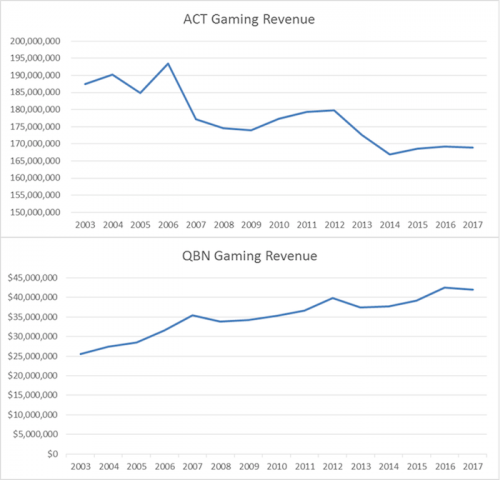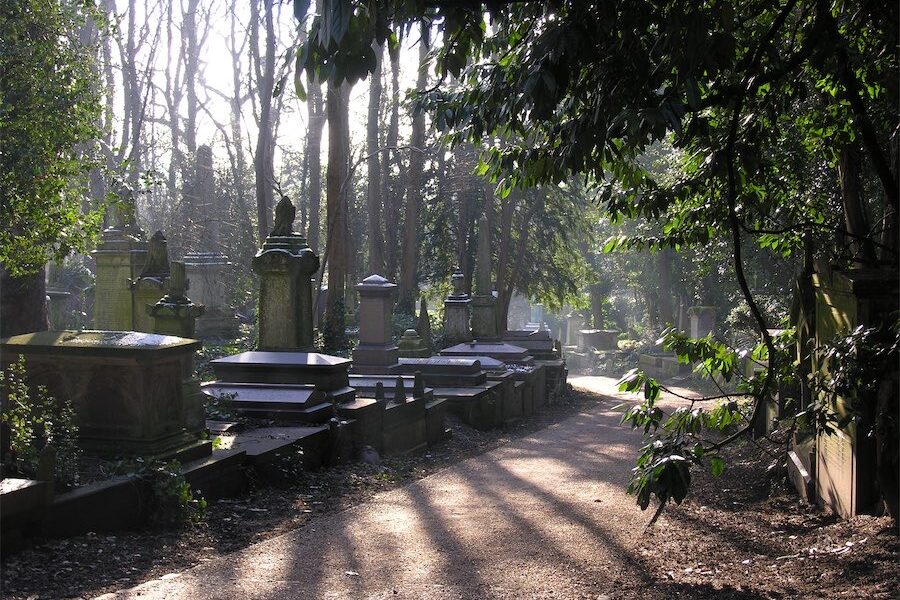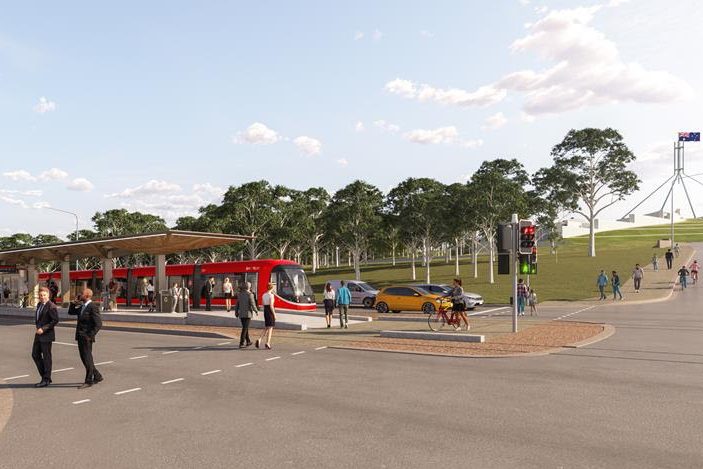
ANTI-gambling advocates seeking to force the ACT government’s hand on substantial and harmful industry change, will do nothing other than to contentedly create an environment that pushes club members across the border to Queanbeyan.
 If we follow the money, we can see that each time the ACT government has introduced new policy, there has been a notable gain for Queanbeyan clubs.
If we follow the money, we can see that each time the ACT government has introduced new policy, there has been a notable gain for Queanbeyan clubs.
Data obtained from the NSW Office of Liquor and Gaming reveals that over the past 14 years as ACT gaming revenue has fallen by nearly $20 million, a similar amount of revenue has moved over the border to Queanbeyan.
The largest peaks have corresponded with changes in regulation. In the year following the introduction of the $50 and $100-note bans in 2004 the ACT experienced a downturn of $5.3 million or 3 per cent, while Queanbeyan saw a corresponding increase of 4 per cent.
Clubs in Queanbeyan have no restrictions on how members can access their own money via ATMs. Patrons of Queanbeyan clubs can use notes of any denomination in the gaming machines.
When the smoking ban was introduced in late 2006 there was another decrease in the ACT of $16.2 million or 8 per cent, compared with Queanbeyan, up $3.8 million or 12 per cent.
From that point on, the ACT has experienced a decline of more than 13 per cent from 2006 to 2017 in addition to not achieving any CPI increases in any year, while Queanbeyan has experienced an increase of 33 per cent!
To make matters worse, clubs in NSW enjoy lower tax burdens. And, as clubs have continued to earn less revenue, the ACT government has sought to increase or introduce a multitude of taxes, fees and charges.
The ACT is an island within NSW. The regulatory regime that clubs in the ACT face is distinctly different to the one that clubs in NSW operate under.
We are not in competition with clubs in Victoria or SA for that matter, but we now have irrefutable proof that policy decisions have simply resulted in Canberrans choosing to spend money across the border in NSW – leading to lower revenues for ACT clubs, lower taxes for the ACT government and less contributions to the ACT community.
Over this same period, nearly a dozen ACT clubs have closed, resulting in the loss of nearly 600 local jobs.
The real tragedy is that ACT clubs and the government are committed to offering support to people struggling with gambling addiction, yet we are potentially letting some problem gamblers fall through the gaps. We may actually be driving those who most need help away from the assistance we can provide here in the ACT.
In 2015, the Public Accounts Committee recommended the ACT government fund a study into the cross-border leakage of ACT gamblers into NSW – the ACT government chose to dismiss this advice.
These numbers should be carefully considered by government before implementing policy that will further disadvantage Canberra’s clubs and the community.
Gwyn Rees is the CEO of ClubsACT
Who can be trusted?
In a world of spin and confusion, there’s never been a more important time to support independent journalism in Canberra.
If you trust our work online and want to enforce the power of independent voices, I invite you to make a small contribution.
Every dollar of support is invested back into our journalism to help keep citynews.com.au strong and free.
Thank you,
Ian Meikle, editor



![Evie Hudson is a woman with amnesia, who forgets the last 13 years. Piecing her life back together, she navigates the harsh realities of coercive control.
Evie is the leading character in local author @emmagreyauthor's second novel Pictures of You.
Her debut book, The Last Love Note, sold more than 100,000 books worldwide within a few months of being published last year.
“I think that using amnesia really helped [show the effects of coercive control] because she had that sense of being completely lost in her own life,” Emma says of her new work of fiction.
To read the full story and find out more about this fabulous local author and her latest novel, visit our website at citynews.com.au or click the link in our bio! 📚✒️
#canberra #local #canberralocals #canberralife #australia #author #localauthor #Picturesofyou #coercivecontrolisabuse #dvawareness #bestsellingauthor #canberraauthor #localnews #citynews](https://citynews.com.au/wp-content/plugins/instagram-feed/img/placeholder.png)
Leave a Reply